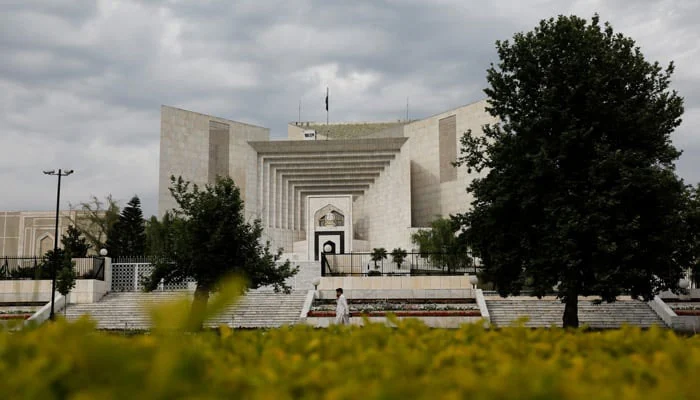IHC terms sharing of private pictures “very heinous crime”.
“FIA collected sufficient incriminating evidence against him.”
Islamabad High Court rejects accused’s plea seeking bail.
ISLAMABAD: The Islamabad High Court (IHC) on Monday observed that the people accused of sharing objectionable pictures of women with others and similar offences do not deserve any leniency.
The remark came during the hearing of a plea seeking bail of a man, Muhammad Haseeb, who is accused of sharing objectionable pictures of a girl on social media site Facebook and her father and husband on WhatsApp.
The court rejected the bail plea, stating that such offences have become very common in the society for the reason that girls send “their objectionable pictures” to boys or friends when in a relationship, which are later shared on social platforms in case of a breakup.
The court termed the sharing of private pictures a very heinous crime.
“[…] as these pictures become stigma throughout the life of girls and in many cases their family life has destroyed; the girls have also committed suicide, hence the accused committing such offences are not entitled for any leniency,” the court stated in a written order.
The case against Haseeb was registered at the Federal Investigation Agency’s (FIA) Cybercrime Reporting Centre, Islamabad, under the Prevention of Electronic Crimes Act, 2016, alleging that the accused “disgraced and destroyed the modesty” of the complainant by unauthorisedly capturing or recording her objectionable pictures and publicly projecting them and sharing with her family members.
“The petitioner has committed a heinous crime by sending the sexually explicit pictures of the complainant to her father, husband, friends etc. as well as by posting the same on the […] Facebook; FIA collected sufficient incriminating evidence against him. Technical analysis expert report is available on record which shows that the petitioner has committed aforementioned crime,” the order stated.
It further stated that the petitioner’s request for bail has been rejected but it is a “tentative assessment” which will not affect the case’s trial.

